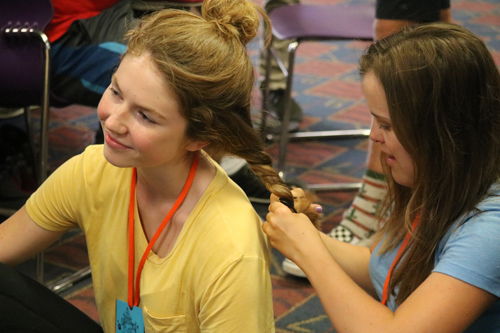
Special needs camps place children of all abilities on even ground for play, friendship, and to discover they are not alone.
At age six, Kim Kelly paid her first visit to a special needs’ residential camp. It was an experience she and her family will never forget. Up to this point, she had lived a pretty sheltered life, her mother Ruth explains.
“Because she has a hearing loss and an orthopedic problem, it was natural for me to want to hold her close.” By bringing Kim to camp, her mother realized two things: “My daughter needed to learn to do things on her own, and I needed to let go a little.” For the Kellys, it was a positive experience.
There’s a host of benefits children derive from attending camp, but for kids with special needs, those benefits are amplified, says Sandy Cameron, editor of the Camping Magazine: “Traditional camps do a great job mainstreaming special needs’ children into their programs, but a special needs camp lets them be with other kids who have similar disabilities. The programs are pretty much the same, but may be altered to meet the children’s needs.”
Heidi Haldeen, summer program specialist for Easter Seals, agrees: “At a special needs camp, kids have the same opportunities they have at traditional camps. The only difference is the activities are modified according to the campers’ needs. This gives them a chance to shine.”
That’s what 9-year-old Tiffany Wells found when she attended a special needs camp. During the school year, Tiffany, who has cerebral palsy and asthma, played on the children’s softball team, and a community bowling league. But because none of the children she played with were disabled, the competition wasn’t always equal.
“Attending a special needs camp allowed Tiffany to compete on more even ground because all the other kids were playing with some kind of disability,” reports her mother, Linda. The result? “Tiffany saw that she could actually win and come out on top.”
One of the beauties of a special needs camp is that the kids can learn and experience new things with others who have similar disabilities, says Cameron. “It’s like a camaraderie. It gives them the confidence they need to try new things they might not have otherwise tried.”
This was the case with Kim Kelly. When she first went to camp, Kim was afraid of the water. “She cried just getting her face wet,” reports her mother, Ruth. Through the encouragement of the trained staff, Kim slowly edged her way into the water. “By summer’s end, she was jumping in the deep end and had received her first American Red Cross swimming certificate.”
While some see summer camp as an outlet for fun and recreation, others use it to continue education and therapy goals, and teach life skills. This is accomplished one-step at a time. “It may mean being ten minutes late for breakfast so Timmy can learn to tie his shoes by himself,” says Haldeen.
Developing new skills isn’t the only thing kids glean at a special needs camp. They learn about friendships, too. Last year when Tiffany went to camp, there was a girl in her cabin with a more severe case of cerebral palsy than Tiffany had. Because Tiffany had spent her whole life with people helping her, she naturally wanted a chance to help others. “When we went to the dance, I got to push my new friend around in her chair,” says Tiffany. “I also got to help her eat.”
“One of the best things to be said about camp – any camp – is the opportunity for the children to make friends. And for children with special needs, it’s especially important. They find out they are not alone, that there are others with similar disabilities,” says Cameron.
When camp is over, what do the children take with them? For some, new skills. For others, new friends. And for many more, simply a fond memory of having had a break from their normal routine.
Many campers look forward to returning year after year, says Haldeen. “For many, we are their summer vacation. The minute they drive away, they are making plans to return next year.”
— Denise Yearian is the former editor of two parenting magazines and the mother of three children and four grandchildren.
By Denise Yearian
Traditional vs Special Needs Camps
While camps designed for specific needs offer very specialized care, some families would prefer to attend a traditional camp that caters to all children. Before enrolling your children in a camp, visit the facility and make sure the layout and surroundings meet your expectations and needs. Following are a few things parents should keep in mind before choosing a traditional or special needs camp for their child:
- Is the camp is accredited by an organization such as the American Camping Association (ACA, www.acacamps.org) or the National Camp Association (NCA, www.summercamp.org)?
- Does it meet the organization’s standards for kids with special needs, including facility and staffing requirements?
- What training and experience do the directors and counselors have in working with kids with a need similar to your child’s?
- Are there other families you can contact whose children have attended the camp that might be willing to discuss their experience with you?
- What is the ratio of counselors to campers? For children with severe disabilities, the ratio should be at least one counselor for every three campers.
- What are the camp’s health and safety procedures? What about the facility? Is there a registered nurse in residence? If not, who will disperse medication, if needed? How close is the nearest hospital? Have emergency arrangements been made with a local hospital?
- Are they able to accommodate special dietary needs? Who will assist with feeding, toileting or other activities of daily living?
- Can I visit the camp to see the program firsthand? Do they have sessions year-round?
- How do they ensure an inclusive environment when some activities aren’t appropriate for your child? What alternatives are available?
- What about the camp’s registration fee? (Keep in mind that expense and quality may not go hand-in-hand, because many specialized camps charge only a fraction of actual costs. Find out if there are scholarships available.)
— Denise Yearian







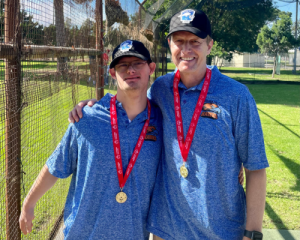
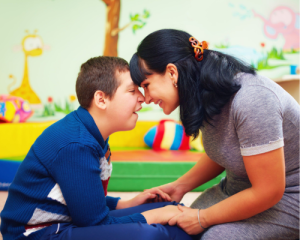
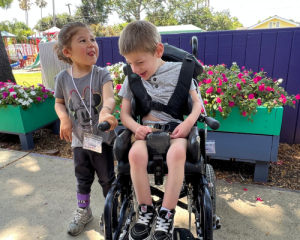
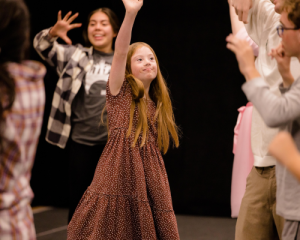
Leave a Reply